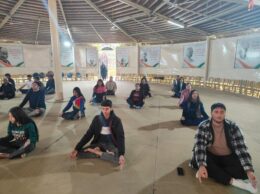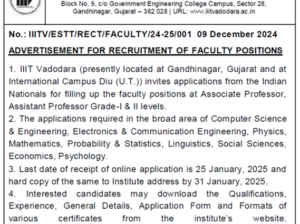By Kadambari Rana:-There seems to be a lot of hullabaloo over school ‘FEE’ in exchange of ONLINE SCHOOLING. Parents are ‘confused’ therefore not convinced to ‘continue’ to pay. So why must they pay the fees even when their children are not using the schools ‘physical infrastructure’?!
The answer to this lies in the ‘relationship’ they share. ‘Households’ and ‘schools’ have shared a ’mutually beneficial’ and ’mutually supportive’ role for centuries. Economic activities are interconnected through a complex web, therefore, their ‘direct’ and ‘indirect’ economic relations are quite obvious.
However, schools and parents are also knotted together by a major ‘non-economic’ motivation, which is, serving in the best interests of the child, ‘selflessly’. Calamities necessitate for this ‘selfless’ motivation to become the guiding light, for both, the schools and households represented by parents.
Once these dynamics become clear to, both, the households and the schools, chances are they will find themselves ‘much more’ connected to one another than they had imagined! Some of the economic interests of the ‘households’ are ‘directly’ linked with that of the schools; in the form of individual services ‘hired’ by the school as teachers, administrative staff, computer engineer, various other technicians, drivers, guards and so on.
In exchange the households receive a salary from the school, their employer or may even receive one-time-payments in exchange of certain ‘other’ services. A representative of the household could be an employee and also a parent of the same school, or a parent of a different school, but still part of the ‘school sector’.
In case, the representative of a household is none of the above, even then its economic interests could still be linked with that of a schools, albeit ‘indirectly’. Schools are significant enterprises, which give business to other industries.
So, if representative(s) of a household are part of a catering group, events management company, transport business, automobile sector, paper manufacturer, air-conditioning, air-purifying, sports equipment, bricks or cement industry, they need to think twice before disengaging from a school!
From the point of view of ‘educational philosophy’, the child must feel ‘secure’ and NOT lose faith in the ‘system of education’. The student must continue to feel that school is a ‘valuable’ place, whether it’s virtual or in school premises.
Since children are our precious ‘resource’, they need to be safeguarded against damage in turbulent times! This ‘core’ philosophy demands that neither the parent nor the school withdraw from each other during ‘special circumstances’.
This can only be achieved if parents and teachers work in tandum! Clearly, ‘team work’ is important but also is ‘communication.’ Both parents and the school have expectations from each other which must be communicated. If the parents are unable to manage intensive ‘home schooling’ due to their professional commitments then schools must consider redesigning the curriculum to shift focus from ‘advance knowledge’ to ‘foundation concepts’, as an interim solution during the lockdown.
On the other hand, if the schools feel they are unable to cut back on the fee, they should explain their overheads to the parents. For this the ‘Parent Teacher Associations’ (PTA) needs to be activated.
A strong and active PTA allows the parent and the teacher to examine various issues collectively and this ‘joint knowledge’ can help them deliver necessary support required, especially during challenging times.
Between ‘online office’ and ‘online school’, parents and teachers, are all sprinting to complete some unaccounted economic activities called ‘household chores’. Therefore, we are all sailing in the same stormy waters! The times call for a lot of understanding and empathy towards each other.
The answer to whether households should continue to pay the fee is, YES!! Your child may not be using the school’s physical infrastructure but they are indirectly consuming the teacher’s home infrastructure and intellectual infrastructure, who is representing the school.
While households may be rightly upset about the quality of these online classes but the lack of passion in teachers is not to be blamed alone, it is largely because most of our teachers are a product of a flawed teacher training system. Give the teachers sometime, who are working round the clock to upgrade their technological skills, since they need their jobs as much as you need yours!
The Author is an educationist who is currently working on documenting her observations on children’s play and learning experiences









